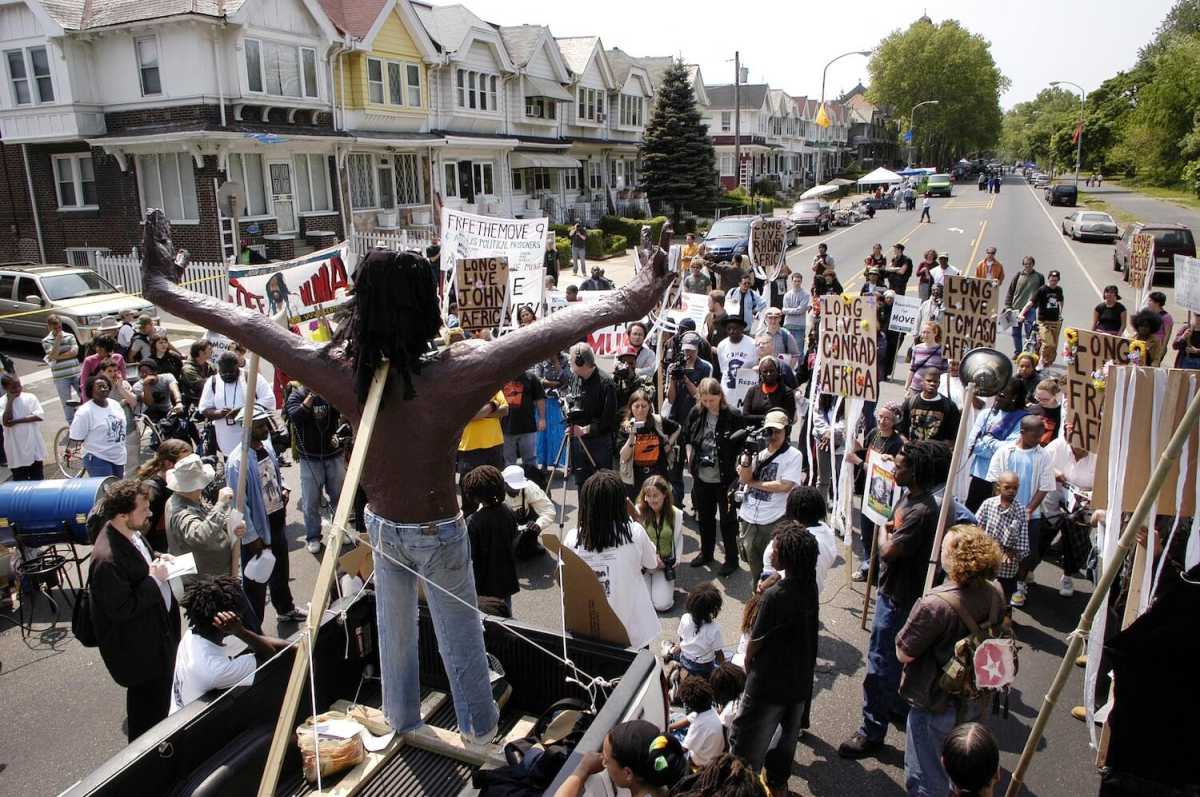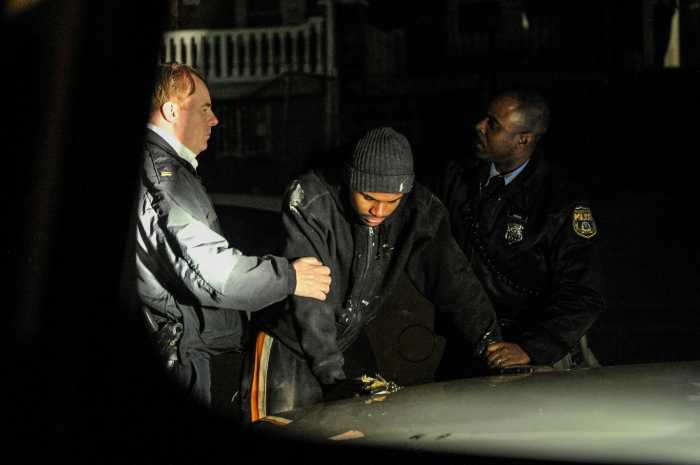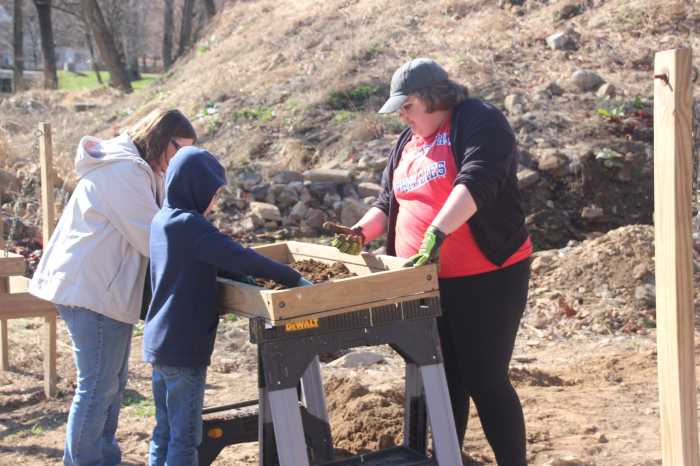Even today, the 6200 block of Osage Avenue reeks of sadness.
It’s the scene of a permanent stain on the soul of the city of brotherly love.
Eleven human beings, including five children, lost their lives and 61 houses were destroyed by fire started by a bomb that police dropped from a helicopter.
Nearly 30 years have passed since that day, May 13, 1985, and Ramona Africa, the lone adult survivor of the withering police attack on the activist group called MOVE, is setting out to make sure that we don’t forget. In what she believes will be the biggest commemoration yet of what, according to published reports, a grand jury called an epic of governmental incompetence, a rally will begin at noon on May 13 at the corner of 62nd Street and Osage. That will be followed by a march to the First District Plaza at 3801 Market Street where a long list of speakers is scheduled to appear. What visitors see today as they look down that block of Osage are row homes that were built after the inferno. Many of them look forlorn, boarded up with plywood, weathered by the years.
You can’t help but pause and say a silent prayer at the front of one of those homes, the one at 6221 Osage, which was the address of the house that MOVE occupied in 1985, the house where 11 people died. Ramona Africa – all of the MOVE members adopted Africa as their surname – and a child, Birdie Africa – escaped that fate when they fled through a door in a garage at the back of the house.
“We were all hollering that we were coming out,” she said in an interview with Metro.
“Me and Birdie just happened to be the first two,” she said.
As it turned out, they were the only two.
“We were in a position where we would either choke to death or burn alive or get shot to death,” she said, referring to the 10,000 police bullets that rained down on Osage that day.
(Birdie Africa died at the age of 41 last year in a hot tub on a cruise ship in the Caribbean.)
Ramona Africa remembers the moment the bomb hit the house.
“We were all in the basement,” she told Metro.
“We heard the explosion, and the house shook,” she said.
“It didn’t occur to us that they had actually dropped a bomb,” which was a weapon that contained the military explosive called C-4.
“Pretty quickly, it didn’t take long, it got smokier and smokier,” she said. “At first we thought it was the tear gas but as it got thicker it became clear that this was something else,” she said. “It started getting really hot.” Well before the bomb fell, MOVE members were irritating neighbors by broadcasting over a loudspeaker demands that other MOVE members, involved in a 1978 incident with police in another neighborhood, be freed from prison. In that incident, a police officer was killed. According to a city investigation report, neighbors of the Osage house complained about the loudspeaker and what the report called the “extremely unsanitary lifestyle” of the MOVE members.
That set the stage for the firestorm that followed, which the grand jury later said showed morally reprehensible behavior on the part of city government leaders, according to published reports at the time. Ramona Africa, 59, has never been back to Osage, although she still lives elsewhere in the city.
But, she said of the death of her friends, and the bombing of her house, “It never leaves me.”
The horrors of Osage Avenue relived

William Thomas Cain/Getty Images



























